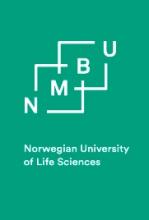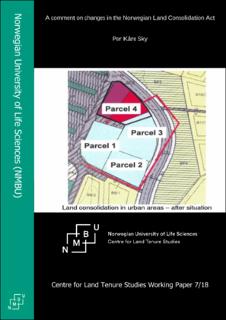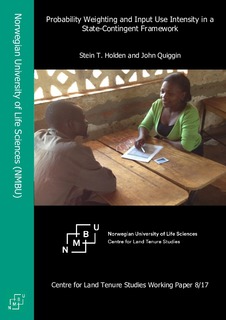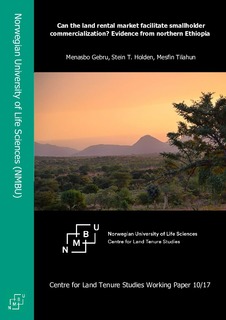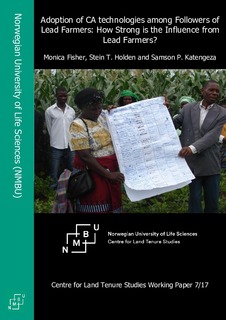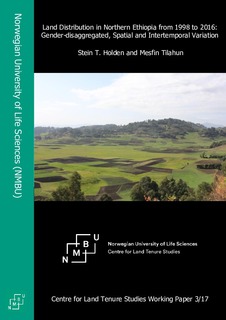Location
NMBU's mission is to contribute to the well-being of the planet. Our interdisciplinary research generates innovations in food, health, environmental protection, climate and sustainable use of natural resources.
About NMBU
NMBU's research is enabling people all over the world to tackle the big, global challenges regarding the environment, sustainable development, how to improve human and animal health, renewable energy sources, food production, and land- and resource management.
Members:
Resources
Displaying 16 - 20 of 98A comment on changes in the Norwegian Land Consolidation Act
The Land Consolidation Act has recently been revised. The changes came
into force on 1 July 2006 and 1 January 2007. The main changes in the Act are that
the land consolidation court now has formal jurisdiction to handle land consolidation
cases for all types of properties independent of location, unless particular cases are
specifically removed from the court's jurisdiction in the Act. The Act provides for
two new types of land consolidation cases in Section 2. The paper analyzes these
different revisions.
Probability weighting and input use intensity in a state-contingent framework
Climate risk represents an increasing threat to poor and vulnerable farmers in drought-prone areas of Africa. This study assesses the fertilizer adoption responses of food insecure farmers in Malawi, where Drought Tolerant (DT) maize was recently introduced. A field experiment, eliciting risk attitudes of farmers, is combined with a detailed farm household survey. A state-contingent production model with rank-dependent utility preferences is estimated.
Can the land rental market facilitate smallholder commercialization? : evidence from northern Ethiopia
The paper utilizes household panel data to investigate whether the land rental market can facilitate improved access to land for land-poor tenant households over time and thereby facilitate expansion of their farming activity. The paper utilizes data 8-17 years after land certification to assess the long-term effect of land certification on the allocative efficiency in the land rental market in areas where land certification stimulated land renting in the early years after certification.
Adoption of CA technologies among followers of lead farmers : how strong is the influence from lead farmers?
This study investigates how the Farmer-to-Farmer-Extension (F2FE) system with lead farmers and follower farmers influences adoption of Conservation Agriculture (CA) technologies in Malawi. Using data from 180 lead farmers and their 455 followers in central and southern Malawi, we assess the level of influence lead farmers have on their followers’ familiarity with and adoption of CA.
Land distribution in Northern Ethiopia from 1998 to 2016 : gender-disaggregated, spatial and intertemporal variation
This study utilizes land registry data from the First and Second Stage Land Registration Reforms that took place in 1998 and 2016 in sampled districts and communities in Tigray region of Ethiopia. Tigray was the first region to implement low-cost land registration and certification in Ethiopia and providing household level land certificates in the names of household heads. Second Stage Land Registration and Certification (SSLRC) is scaled up since 2015 and provides households with parcel-based certificates with maps. The SSLR&C lists all holders of parcels by name and gender.

